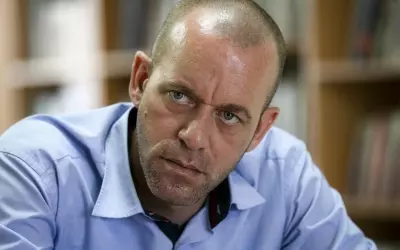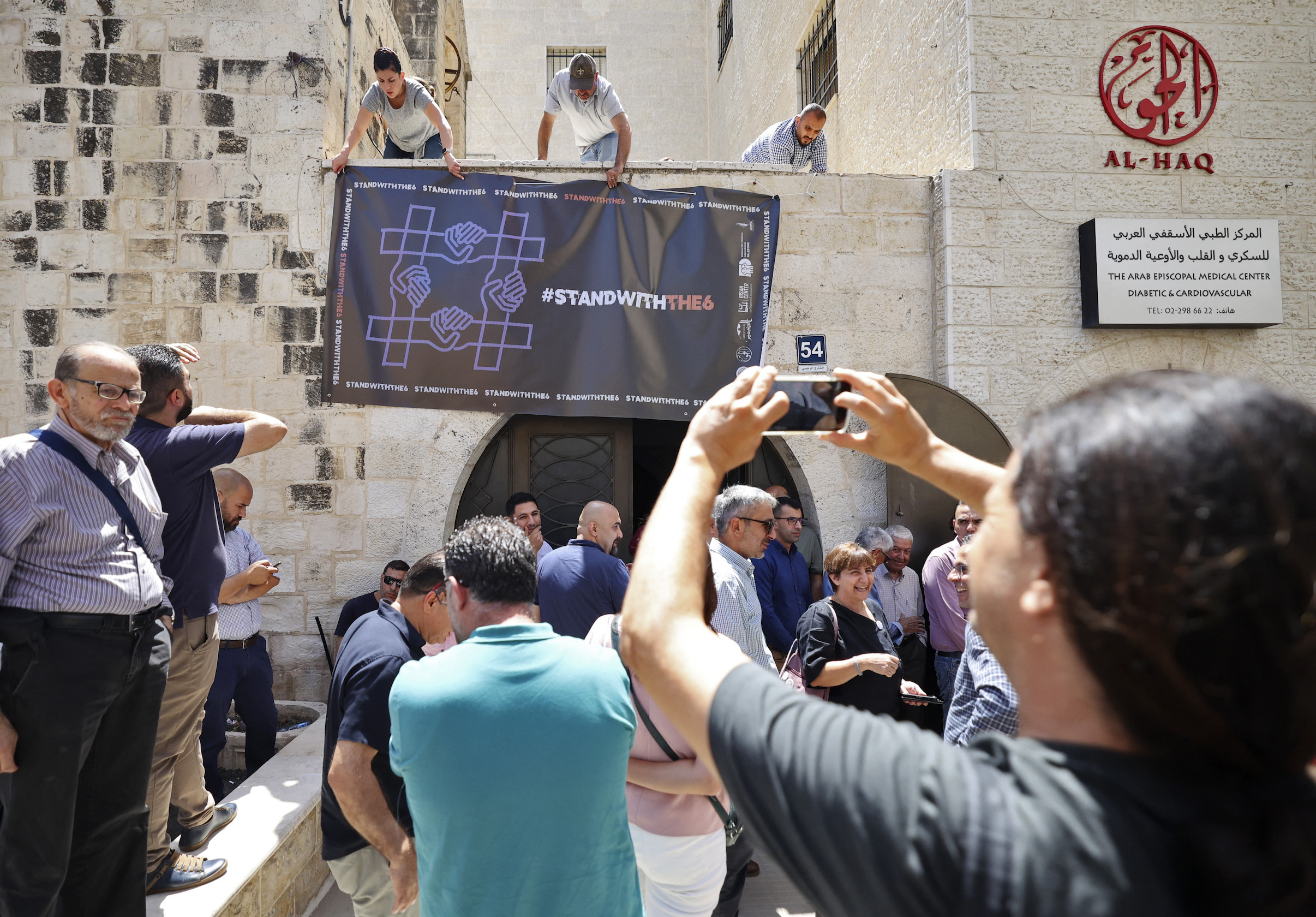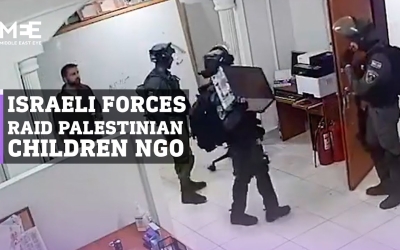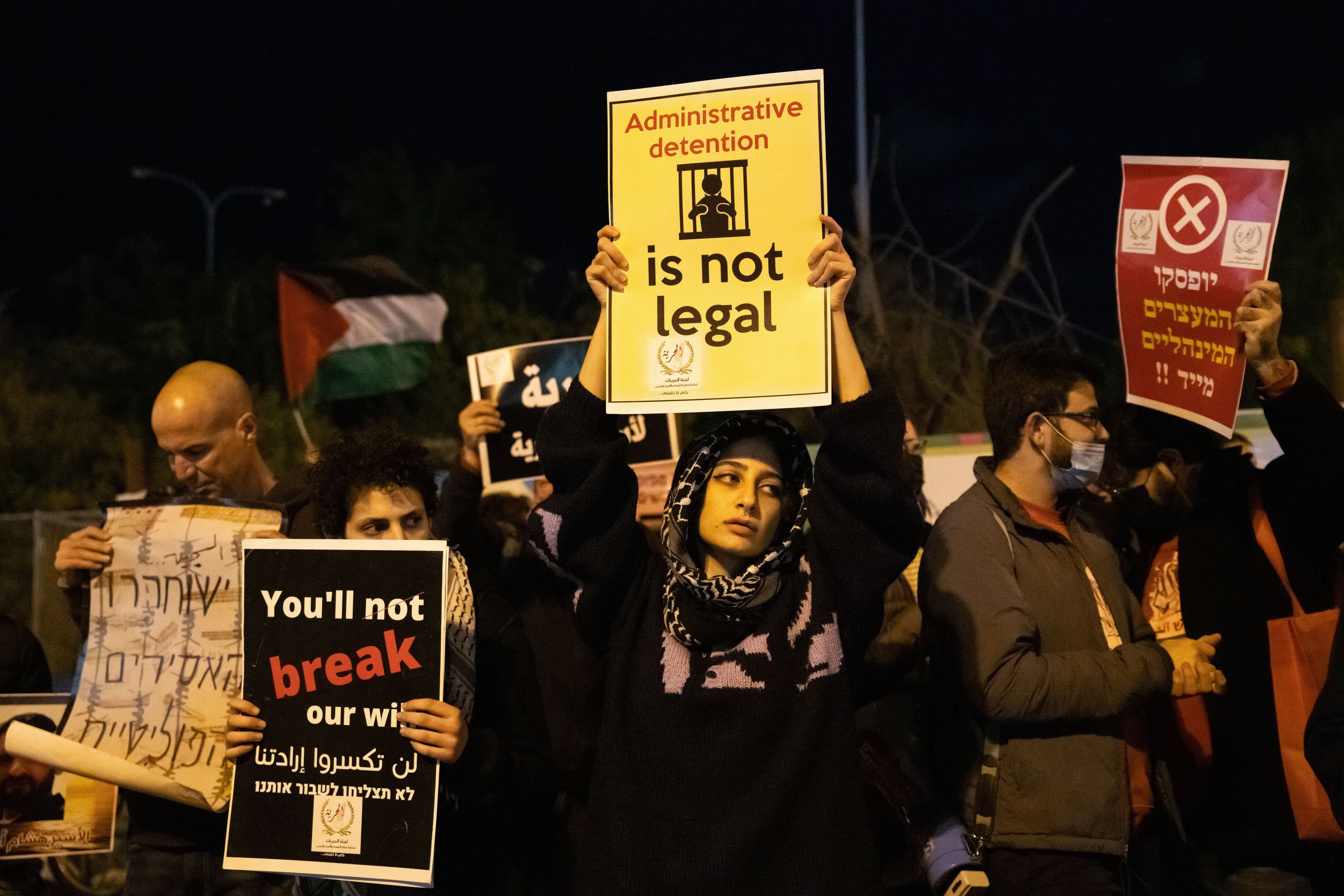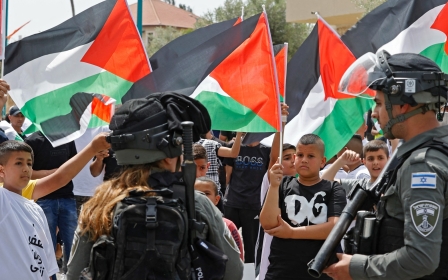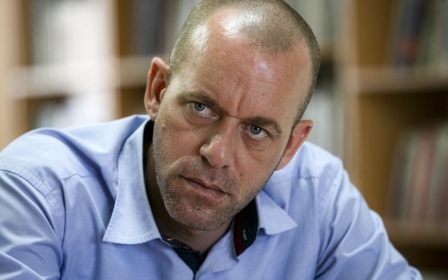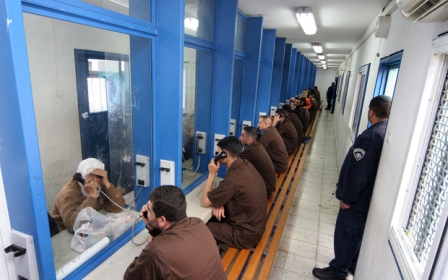How Israel's 'anti-terror' law is crushing Palestinian civil society
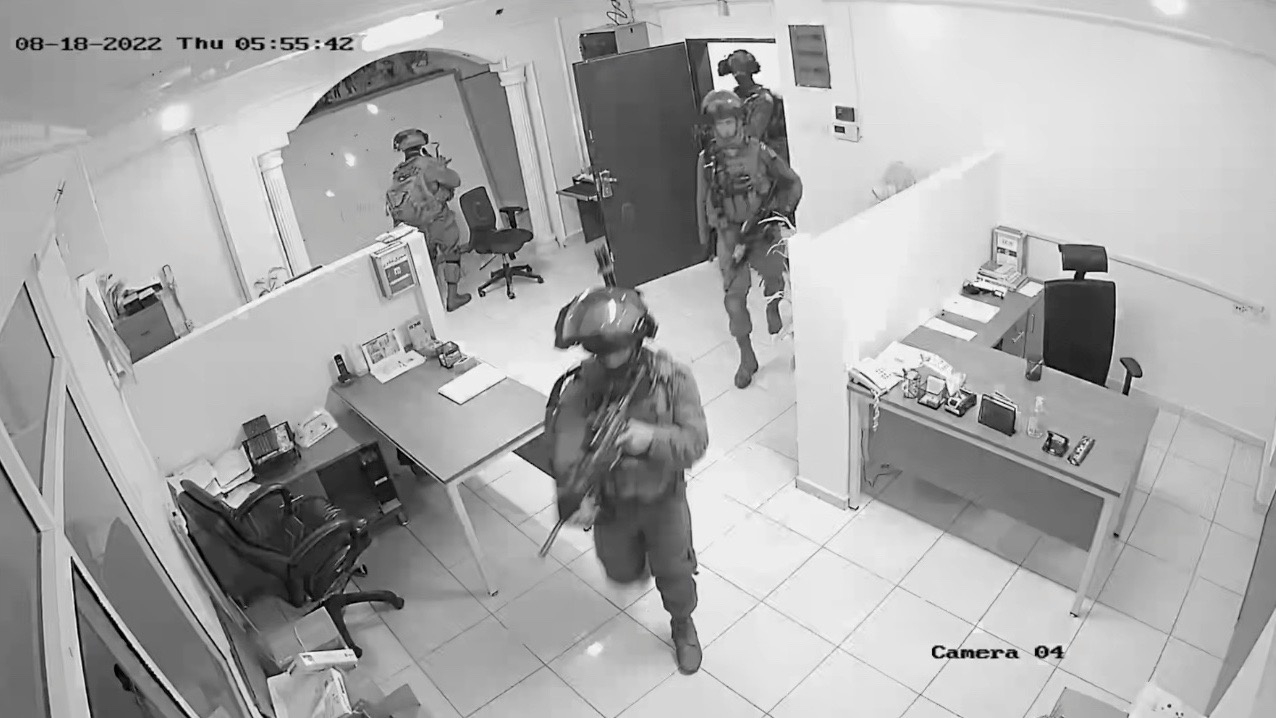
Last month, Israeli forces raided and shut down the offices of seven Palestinian civil society organisations in the West Bank.
In June 2021, the Israeli army raided and shut down the Ramallah-based Palestinian Health Work Committees (HWC), a year and a half after an Israeli military order deemed the healthcare organisation "unlawful" in January 2020.
This raid is a flagrant violation of the proper legal process that is required to take place in every 'fair' trial
The attack on Palestinian NGOs was further escalated by Defence Minister Benny Gantz's proclamation of six other Palestinian NGOs as "illegal terrorist" organisations, according to Israeli law, in October 2021.
The terrorist designation of the six groups was based on the 2016 Counter-Terrorism Law and 1945 Emergency Regulations, also known as the "Anti-Terror Law", and what Israeli authorities called "secret evidence".
The offices were closed in August after the military commander in the occupied West Bank upheld the decision. The United Nations criticised this move as "totally arbitrary".
New MEE newsletter: Jerusalem Dispatch
Sign up to get the latest insights and analysis on Israel-Palestine, alongside Turkey Unpacked and other MEE newsletters
War on civil society
The closures were followed by threats of restrictions, prosecutions, and other rights violations that may include a travel ban for staff and activists associated with these institutions, the confiscation of additional property, and even arrest.
In July 2021, Shatha Odeh, the director of the HWC, was arrested and sentenced to 16 months in prison and ordered to pay a fine. Meanwhile, Israeli authorities are still renewing the administrative detention order against Salah Hammouri, a lawyer at Addameer, one of the criminalised human rights organisations.
What distinguishes these groups is that they are human rights and civil society organisations that provide services, support, and counsel to the Palestinians living under occupation.
They work in accordance with Palestinian law and adopt international charters and agreements that are in line with the conditions of a people under occupation, particularly the Fourth and Third Geneva Conventions.
Implementing the court's ruling, at dawn on 18 August, the Israeli army stormed the headquarters of the seven NGOs, confiscated their files, computers and office equipment, and announced their complete closure by placing military orders on their doors and fixed iron plates at their entrances.
These raids are a flagrant violation of the proper legal process that is required to take place in every "fair" trial, as institutions have been declared "terrorist" without revealing evidence before them to which they could plead or respond.
Even if the institutions refrain from petitioning Israel as the occupying country, its army, its judiciary, and its courts, and consider them to have no legal jurisdiction in the Palestinian Area A (according to the 1993 Oslo Accords), this does not preclude their right to review the evidence.
However, the refusal of the Israeli authorities to disclose the alleged evidence, claiming that the disclosure “harms the security of the state” is an additional violation of law and the proper legal process, which prompted these institutions’ defence team to file procedural objections on 3 February to the military commander of the Occupied Palestinian Territories on behalf of five of the organisations. However, the military legal advisor issued a decision rejecting these objections.
This blatant step was condemned and rejected at the international, regional, and local Palestinian and Israeli official and unofficial levels.
On 22 August, the European Union ambassadors, including the ambassadors of Germany, France, Italy, Spain and the EU ambassador to Israel, after their meeting with the representative of the Israeli Ministry of Foreign Affairs, were clear about their continued support and financing of these organisations despite Israel’s declaration that they are “terrorist”.
Criticising the raid of their offices, the ambassadors added that they do not view them as terrorist groups and reject such designations.
International condemnation
A statement spearheaded by the Cairo Institute for Human Rights Studies, and signed by more than 200 organisations around the world, called on the international community to take a stand against these measures, expressed solidarity with the seven NGOs, and demanded pressure on Israel to repeal the banning orders and the Anti-Terror Law of 2016.
In addition, 53 Israeli organisations declared that "human rights are not terrorism" and condemned the banning orders.
The statement argued that "these declarations are baseless. Indeed, the US Administration, the European Union and other allies of Israel found Israel’s allegations unconvincing. After thoroughly examining the material Israel provided them, all of the European countries that are donors to these organizations decided to continue their support."
Following the "terrorist" designation last year, Palestinian civil society organisations active in Israel released a statement on 25 October condemning the Israeli government's decision: "[We] consider this a blatant undermining of civil and human rights work, and political persecution that exacerbates the occupation and its repressive practices, and that the decisions represent a criminalization of civil work and a clear violation of human rights, in addition to being an escalation of aggression against the rights of the Palestinian people and their civil institutions.”
Judicial warfare
In December 2019, then-Minister of Defence Naftali Bennett issued several administrative detention orders (Nos 56/19, 57/19 and 58/19) based on the anti-terror law to seize money and bank accounts of dozens of families of Palestinian prisoners who are citizens of Israel.
Israeli authorities claimed that they receive money from the Palestinian Authority (PA), considering it terrorist money according to the occupation's definition, and claiming that they received it as a reward for carrying out "dangerous terrorist operations" by members of these families.
The administrative measures include preventing families from closing their accounts while confiscating funds from their accounts in amounts ranging from thousands to tens of thousands of shekels per family.
Bennet's predecessor, Avigdor Lieberman, announced in 2018 the establishment of the “National Council for Economic Combating of Terrorism”, whose aim, he claimed, was “the economic warfare against 'terrorist organisations' in Israel and abroad”. The bill, passed by the Israeli Knesset in 2018, approved freezing the PA’s funds "related to terrorism" and deducting them from tax funds collected by Israel on behalf of the PA.
In a previous article, I discussed the arrest of and charges against more than 2,000 Palestinians in Israel by Israeli authorities based on the Anti-Terror Law.
Many of the detainees were subject to security investigations and interrogations by Israel's security agency, Shin Bet, in May 2021, as a part of the so-called "Law and Order" campaign that Israel launched in order to disrupt the Karamah Uprising.
In the same article, I cited statistics from the summary of the state attorney's office during the mass protests - in which Israel began waging a judicial war in parallel to its war on Gaza last year - indicating that it had filed indictments against 545 Palestinians out of a total of 616 accused, including 161 youths.
The indictments included serious charges such as “terrorist acts” based on “racist motivations” and “hate crimes,” which double the sentences for the same charge, and 239 charges were filed on "aggravated" grounds - 85 percent of them against Arabs and 20 percent against children.
Deeming all a 'security threat'
To date, verdicts have been issued in 80 cases, all of which resulted in conviction and prison sentences of varying lengths. in some of these cases, the public prosecution has appealed, considering the verdict was “light” and demanding harsher punishment.
Israeli authorities view the Palestinians and their institutions wherever they exist as a 'security threat'
In fact, as I mentioned in my previous article, the public prosecution categorised the Palestinian citizens of Israel as enemies, and stated in its report: “The Arabs carried out acts of sabotage and violence against Jews and their properties in return for a very small number of attacks by Jewish citizens against Arabs”.
Whether through attacks on Palestinian individuals, families, and NGOs, it is clear that Israeli authorities view the Palestinians and their institutions wherever they exist as a “security threat”.
The government continues to wage war on Palestinian life and civil society on multiple fronts through policies such as the Anti-Terror Law and emergency regulations, and tactics such as administrative detention and the use of “secret evidence,” which deny justice, due process, and violates international conventions and laws.
The views expressed in this article belong to the author and do not necessarily reflect the editorial policy of Middle East Eye.
Middle East Eye delivers independent and unrivalled coverage and analysis of the Middle East, North Africa and beyond. To learn more about republishing this content and the associated fees, please fill out this form. More about MEE can be found here.



